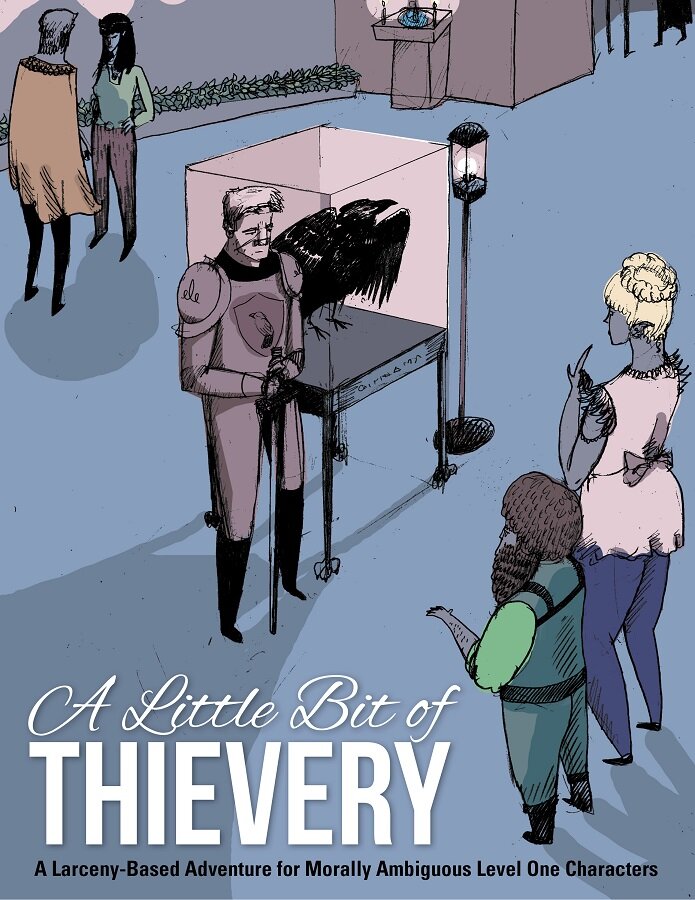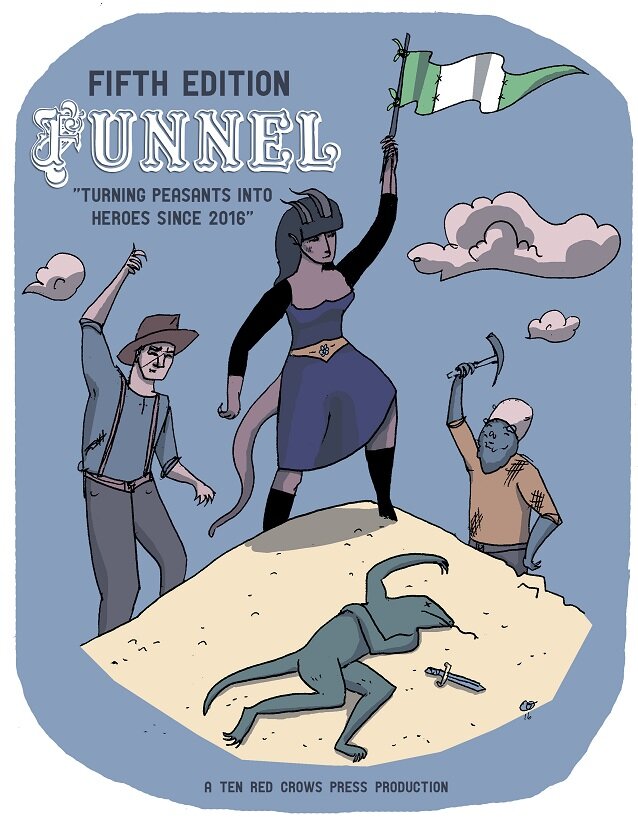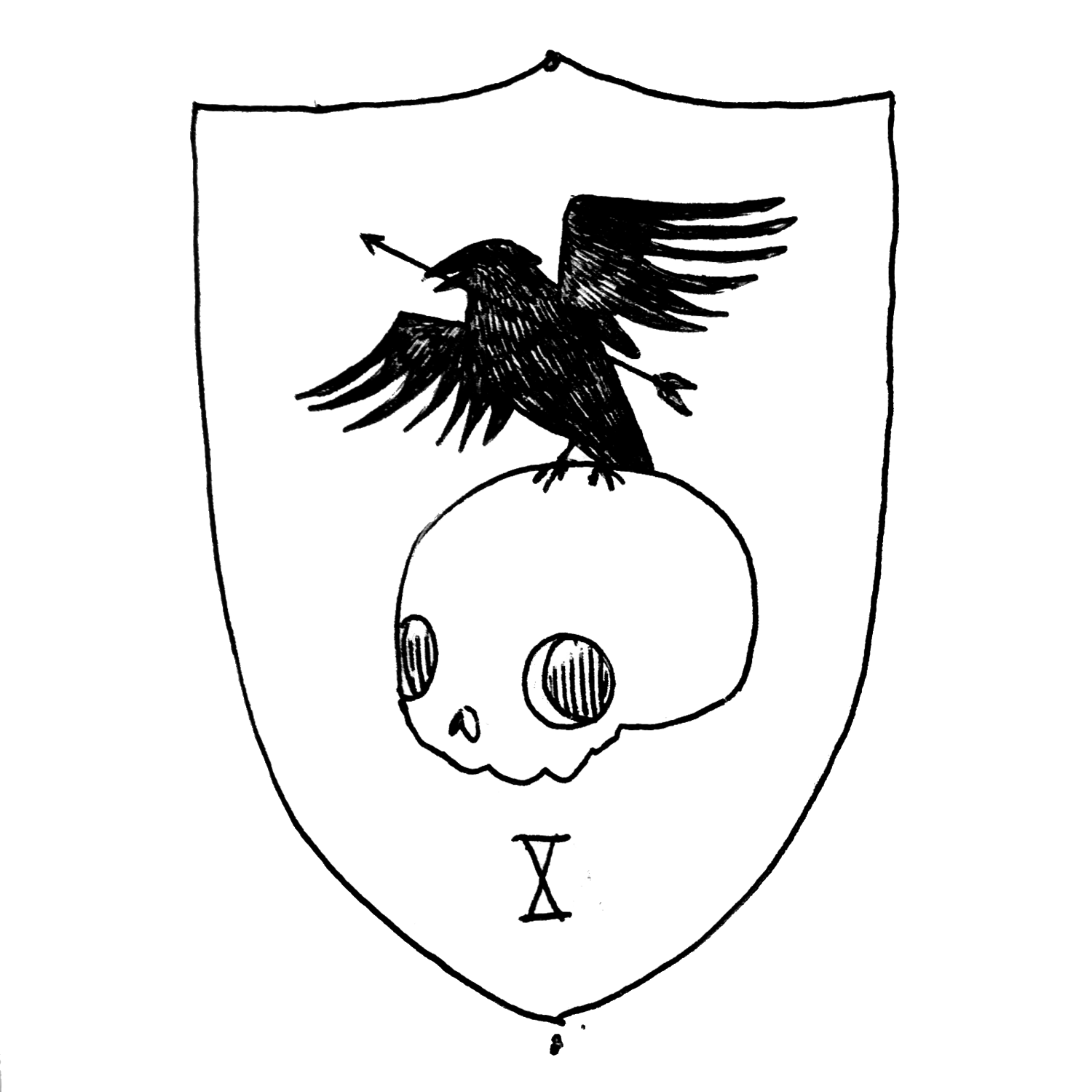The Open Gaming License is dead
I’ve rewritten this post four or five times, but the theme has remained the same: The Open Gaming License (OGL) is dead.
Watching the chaos over the past several weeks has been deeply frustrating, but also strangely cleansing - in the end, Wizards of the Coast has managed to provide a certain amount of clarity: the OGL no longer matters. What was once secure stable ground to build a business is now cast asunder, wrecked upon rocky shoals.
Yes, I know there are legal questions about what is copyrightable and what isn’t, whether or not the OGL can be revoked, or whether OGL actually does anything, but none of those arguments get to the heart of the problem. As with many things under capitalism, the crux of the issue is that it doesn’t matter what is true or what the law is - what matters is how much it costs to prove you are right. If WotC comes knocking, very few will be able to justify $50,000+ to prove that you can use Strength, Dexterity, Constitution, Intelligence, Wisdom, and Charisma in a game royalty-free or just copy the “expression” a stat block.
This was an underpinning of how the OGL worked in the first place: it clearly delineated what was usable content and what wasn’t. It created a space that didn’t require lawyers. It allowed creators to build an RPG renaissance, and it gave WotC, with 5th edition, a lot of money.
Trust makes the world go ‘round
What makes contracts work is trust. The whole point (and I say this with no experience in law, but as someone who has signed a couple of marriage licenses) is that we don’t actually want to get involved in a protracted legal battle. Enforcing a contract is expensive. And that is how the OGL worked. We all trusted each other - WotC trusted creators to build interesting worlds that they could mine for content. Creators trusted WotC to maintain their word. WotC (and the people involved in creating the license) said it was irrevocable. We trusted them and built entire game systems around that principle.
Then, 20 years later, they reply: “Oops! I guess we were mistaken, it is totally revocable, all of our assurances to the contrary meant nothing.”
Even though WotC decided to keep the old OGL, the trust that they had built with the DnD community is broken. In our wildest fantasies, suppose they released the old OGL and added the terms “irrevocable,” “cannot be deauthorized,” and “forever in perpetuity so help me God amen,” what stops the WotC legal team 5 years from forging a loophole somewhere to cast enough doubt that we will end up back to answering $50,000 legal questions?
The OGL is dead
We can’t rely on WotC. With 20/20 hindsight, the conflict of interest is obvious: the OGL is maintained by the company whose bottom line it affects. That company has let us know that if any version of the OGL becomes inconvenient to their short-term profits, they will attempt to change it. We can't trust that in 5 years and a management change WotC won’t try again.
Moving Forward
For now, the old OGL stands. As an additional mea culpa, WotC released the 5.1 System Reference Document (SRD) into the Creative Commons. This is a great place for any aspiring designer to start. Why use OGL, a more restrictive and tenuous license? The only problem with releasing just the 5.1 SRD is that it generally lacks descriptions for anything (most of those are still locked under the OGL with the 3.5 SRD). What do Orcs look like? How tall are elves? Some descriptions are implied (an elf has proficiency with a longbow, for example) but the 5.1 SRD just lacks that information.
Furthermore, older projects (OSRIC, Basic Fantasy, Pathfinder, etc.) are released under SRDs and are still trapped under the OGL and subject to the whims of WotC attorneys. My hope is that we pressure WotC to release these into the Creative Commons, allowing creators full access to D&D material without encumbering themselves with the OGL.
In the end, the less restrictive Creative Commons license, combined with the conflict of interest from WotC leads us to a future where the OGL will no longer apply. The only question is how much can we salvage before we build worlds that are truly ours, and not subject to the dictates of a corporate machine.






